Camino Network
The L1 blockchain designed for the travel industry and fueled with CAM token.

CAM is the native token of Camino Network and plays an important role in driving the seamless operation and growth of the global web3 travel ecosystem.

Discover Camino Network's token economy, technology, features, and strategic roadmap, along with its potential impact and benefits.
Become a validator of the network

Read the documentation and start building

Apply for a grant from the Camino Network Foundation

Find vulnerabilities in code and get rewards

“Camino, as the first blockchain platform for travel, offers vast possibilities to enhance processes...”
"Blockchains have enormous potential to materially change our business model by making transactions along the value chain more secure, efficient and traceable. Camino, as the first blockchain platform for travel, offers vast possibilities to enhance processes, products and services in the travel industry. Eurowings will be one of the first movers, currently exploring first use cases in inflight shopping, customer loyalty, digital marketing and sales together with our partners Chain4Travel and Peakwork."

“Similar to the internet in the 1990s, Blockchain could become a game changing technology in travel.”
"Similar to the internet in the 1990s, Blockchain could become a game changing technology in travel. Chain4Travel is well positioned to actively drive this change and is one of the most advanced innovation companies in this field."
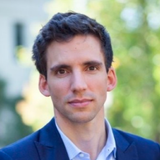
“The Camino Network will revolutionize the global travel industry by empowering both travel businesses...”
"The Camino Network will revolutionize the global travel industry by empowering both travel businesses and travelers with the full potential of web3 technologies. This approach could also bring significant additional interest to the overall web3 space, as it demonstrates new, real-world use cases that go beyond financial services."
Camino Messenger transforms B2B travel distribution with its efficient, fast, and cost-effective platform, enabling personalized offers at scale.

Camino Network is a distributed ledger, where consortium members navigate future developments, secure the network and support each other.
Camino Network provides digital technologies and a collaborative environment for travel companies to explore new markets and build innovative products with web3 tools.

February 19, 2024
Setting the global standard in travel data management and distribution

February 06, 2024
The first web3 travel hackathon in Munich brought over 40 travel tech enthusiasts and professionals under one roof of FTI HQ. Participants could learn, build, and deploy new concepts on Camino Network.

January 30, 2024
2023 has been an exciting year for Camino Network. The first layer one blockchain tailored for the needs of the travel industry was successfully launched.
Camino Network is an inclusive ecosystem open to all. Learn, innovate, and build to enhance travel technologies for all.
Camino is the travel industry blockchain. Fueled by the Camino token, it is offering a versatile network to expand current business models and to create new touristic products to delight travelers and business partners.

Related Travel Research
Roundup: web3 is proving its value in travel.
Free for Open Access Subscribers
Following a long buildup-and-hype period, 2023 is proving to be a pivotal year for Web3: These decentralized technologies are now delivering concrete, measurable value to the travel industry. Over the past several years, a diverse set of new Web3 companies have emerged, and many are already driving change in the travel space. Startups continue emerging, providing travelers with new capabilities and flexibilities while impacting overall cost of distribution and settlement for industry players.
Part of a content series that explores some of the most significant technology-driven trends that will influence travel distribution in 2023 and beyond, this article highlights 17 companies that are implementing Web3 technology, and focuses on:
- How these organizations are leveraging Web3
- Description of the specific value-add being provided to the travel industry
- Assessment of current progress, achievements and challenges
- Outlook for 2023 and beyond

What is Open Access
An Open Access subscription provides company-wide access to the whole library of Phocuswright’s travel research and data visualization.
Curious? Contact our team to learn more:
What is open access+.
With Open Access+, your company gets access to Phocuswright's full travel research library and data visualization PLUS Special Project deliverables.
Provide your information and we'll contact you:
Curious contact our team to learn more:.
Powering Web3 innovation: Enabling companies integrate Web2 and Web3 worlds

Unlocking the Future of Travel with Web3: A Game-changer for Explorers
- February 6, 2024

Nu10 Insights
Practitioners/Doctors
Want to Discuss more?
Connect with us!

Introduction to Web3 and Blockchain Technology:
In today's ever-evolving digital landscape, Web3 is set to revolutionize the way we interact with the internet. Unlike its predecessor, Web2, Web3 is a decentralized internet that puts control and ownership of data back into the hands of individuals. By leveraging blockchain technology, Web3 ensures transparency, security, and trust in online transactions.
Blockchain, the underlying technology powering Web3, is a distributed ledger that maintains a continuously growing list of records, called blocks. It operates on the principles of decentralization, where no single entity has control over the network, and transparency, as every transaction is recorded and visible to all participants. This innovative approach to technology holds immense potential for reshaping various industries, including travel.
Web3 and Travel: The Connection:
The integration of Web3 into the travel industry can bring about a multitude of benefits for both travelers and the travel industry as a whole. By removing intermediaries and empowering individuals, Web3 enables direct peer-to-peer interactions, creating a trustless environment that enhances efficiency and eliminates unnecessary costs.
One primary area where Web3 can make a significant impact is in decentralized travel booking. With the use of decentralized applications (dApps) and smart contracts, travelers can seamlessly book flights, accommodations, and activities without relying on traditional intermediaries. This direct interaction allows for cost savings, as the need for commissions and booking fees is eliminated. Additionally, the transparency of blockchain technology ensures that all transactions are securely recorded, enhancing trust between travelers and service providers.
Tokenization of Travel Assets:
An exciting concept within the Web3 travel ecosystem is the tokenization of travel assets. Tokens represent ownership or access rights to various assets, such as hotels, real estate, and loyalty programs. By owning travel-related tokens, travelers gain a stake in the industry, enabling them to contribute to decision-making processes and reap the benefits of collective growth.
Tokenization offers several advantages for travelers, including increased liquidity and flexibility. Travelers can easily trade their tokens or even utilize them as a means of payment within the Web3 travel ecosystem. This opens up myriad possibilities for personalized travel experiences and fosters a sense of community in the exploration of new destinations.
Decentralized Identity and Privacy:
In an era where personal data protection is a growing concern, Web3 holds the promise of providing travelers with more control over their personal information and identity. With Web3's emphasis on privacy-focused solutions like self-sovereign identity, individuals can securely store and manage their digital identities without relying on centralized authorities. This newfound control over personal data empowers travelers to choose with whom they share their information, mitigating the risks associated with data breaches and identity theft
Smart Contracts for Travel Insurance:
One area of the travel industry that can greatly benefit from the integration of Web3 is travel insurance. Smart contracts, autonomous digital contracts that execute automatically when predefined conditions are met, can revolutionize the way travel insurance claims are processed. By utilizing smart contracts, the claims process becomes more transparent, efficient, and automated.
With smart contracts, travelers no longer have to navigate complex insurance forms and deal with lengthy claim processing times. Instead, claims are automatically executed based on predetermined conditions, leaving no room for human error or subjective interpretation. This streamlined approach to travel insurance not only saves time but also improves trust and customer satisfaction.
Community-Driven Travel Platforms:
Thanks to the emergence of community-driven travel platforms built on decentralized networks, travelers now have the opportunity to collaborate, share experiences, and plan trips in innovative ways. These platforms leverage the power of Web3 to foster a sense of community among like-minded explorers who can connect, exchange insights, and create memorable travel experiences together.
Decentralized social networks within Web3 allow travelers to bypass traditional social media channels and access authentic, real-time travel recommendations from fellow explorers. By removing the influence of paid advertisements and commercial interests, community-driven travel platforms empower users to make informed decisions based on genuine experiences and trusted recommendations.
Challenges and Concerns:
In conclusion, Web3 is poised to unlock a new era of possibilities for travelers and the travel industry alike. By embracing the principles of decentralization, transparency, and security, Web3 enables a future where individuals have greater control, trust, and efficiency when exploring the world. As we navigate this exciting frontier, it is crucial to embrace innovation responsibly and overcome the challenges that lie ahead. Together with Nu10, kickstart your journey to shape the future of travel with Web3.
About Author

Mohit Kataria
Mohit is a tech-enthusiasts who have founded and built Manthan Research and Analytics, which got acquired by M3 and got rebranded to m360 Research. M3 is a $40bn+ Japanese Medical Information firm which is the youngest Nikkei 225 company. During his tenure there, it specialized in using cutting-edge advanced analytics techniques like NLP, unstructured data analytics, machine learning to drive actionable intelligence. He enjoys breaking new ground, building & scaling high-performing teams ground up, and creating new solutions.
More From Mohit Kataria

Wireless Holter Monitoring: The Future of Cardiac Care

The Role of Artificial Intelligence and Machine Learning

AI in Logistics

Demystifying Token Development: A Comprehensive Guide
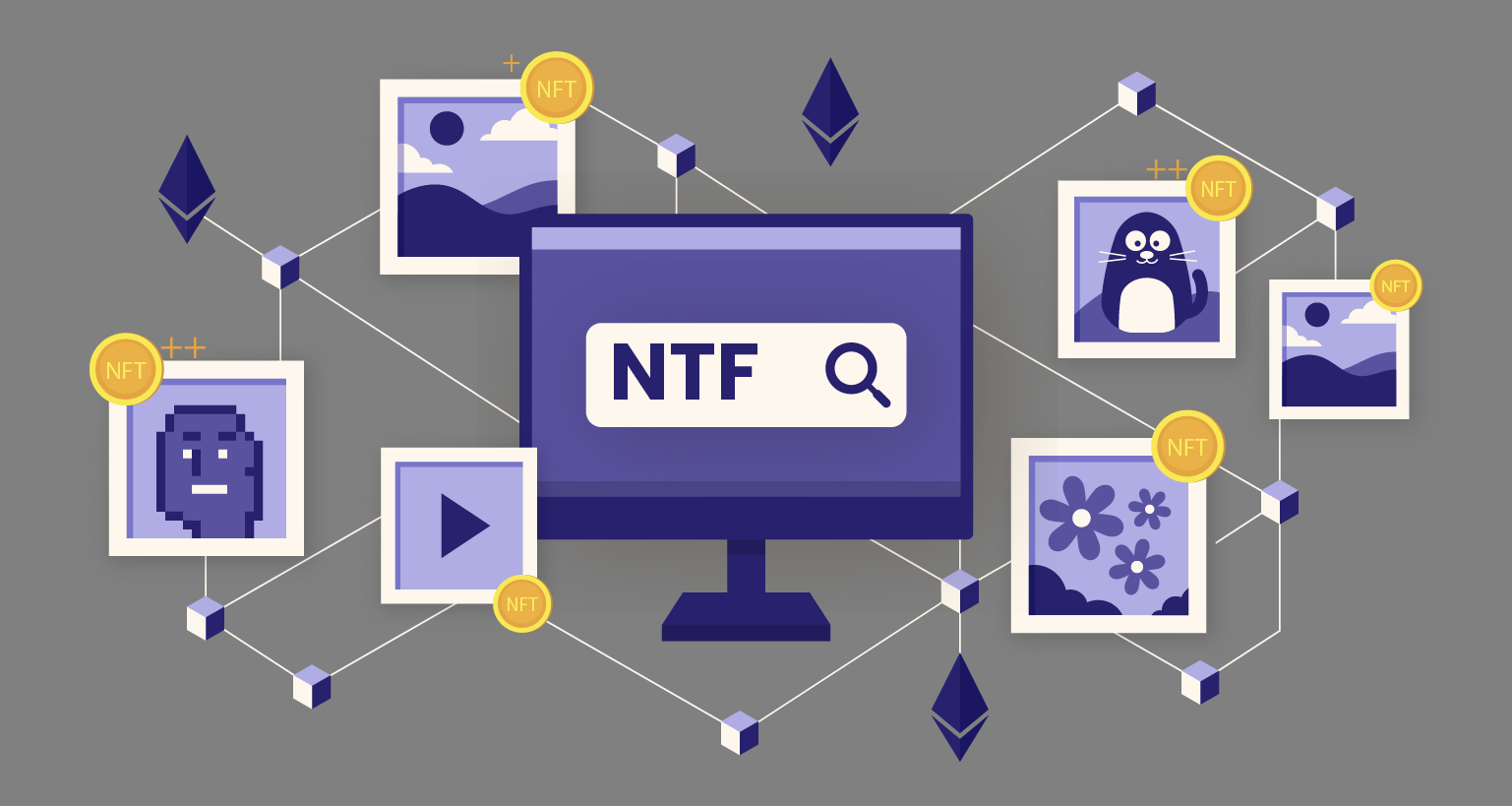
Decoding NFTs

Gamification
Web3 in Travel: The Implications for Businesses and Travelers

Web3 and its associated technologies, like blockchain, may be considered groundbreaking for myriad reasons. However, one thing that has led to their widespread adoption is their capability to revolutionize various aspects of our day-to-day life, including how we travel.
Although the travel industry is dominated by large business entities operating in a centralized way, travel experiences can become far more secure and traveler-friendly with the integration of web3. Why so? Because blockchain technology is at the heart of the web3 revolution. And since blockchain is a shared, distributed and encrypted digital ledger that serves as an irreversible and incorruptible public database of stored information, it can bring transparency, safety and accountability to several critical touchpoints.
Although web3 in travel shows promise for businesses, governments and travelers alike, consumers will likely be the biggest beneficiaries as web3 in travel ensures streamlined and seamless travel experiences with a higher degree of autonomy for travelers. Before we dive deeper into the discussion around web3 in travel, let us touch upon the basics, starting with the meaning of web3.
What is web3?
Implications of web3 for the travel industry, what aspects of travel are most impacted by the web3 movement, two most important benefits of web3 in travel.
Web3 is the most recent iteration of the world wide web, characterized by decentralization. As mentioned above, web3 obtains the quality of decentralization based on blockchain technology.
Web3 is still evolving; thus, no web3 definition that has so far been put forward can be considered complete. However, one thing that needs no further clarity is that web3 lays the groundwork for a truly decentralized world, where nothing is under the top-down oversight of centralized entities.
Blockchain-based applications and services are slowly gaining steam, with a lot of money being pumped into their development. Web3 in travel also uses machine learning, artificial intelligence and other advanced technologies to create more adaptive and intelligent applications. Not much surprisingly, travel and tourism is among the industries that have benefited the most from the web3 movement.
Now that we have understood the concept of web3 let us see how it has helped the travel industry to evolve.
Stability and security are two of the most important benefits web3 in travel offers. A blockchain’s decentralized nature implies that transactions recorded are always traceable; hence, information cannot be lost or deleted accidentally.
The travel industry relies heavily on information exchange between companies. Travel agents must pass on customer information to hotels and flight companies. Personal belongings of travelers are also often shared between companies and are tracked. Any hindrance in the flow of such information can hamper travel experiences significantly. Cases of information loss or incorrect information being passed can worsen the situation. When it comes to web3 in travel, blockchain technology helps information flow to take place seamlessly. Since the entire network of nodes responsible for running a blockchain shares responsibility for data storage, accessing and storing passenger data becomes a hundredfold easier when it is done in a decentralized way.
Financial transactions are also an essential part of web3 in travel. Blockchain technology can not just simplify but also secure payments. This is especially true for overseas transactions. Blockchain can potentially increase trust between all parties involved- from airline companies and travel agencies to hospitality businesses and travelers.
Reservations
With more people willing to splurge on traveling, travel prices are shooting up. The prices are rising primarily because vacationers and tourists try to seize every available opportunity in the travel space. This has led to people paying more for their vacation than they would want to and even missing the opportunity to travel for being unable to afford the trip.
This sudden rise in prices has become a subject of worry for travelers. Thankfully, blockchain technology may be of help here. Blockchain-based travel booking platforms are easy to use and bring greater transparency and security to the table. BitBook is one of the many booking platforms that operate in the blockchain space. However, what sets it apart from its contemporaries is that it allows users to make travel reservations and earn cryptos for doing so.
It’s worth noting that such blockchain-based travel booking platforms allow you to make reservations for hotels, vacation rentals, car rentals, airlines and the like.
Web3 in travel also provides startups and scale-ups a great opportunity to compete in a market dominated by central entities.
Unfortunately, hotels are compelled to pay huge commissions on bookings and payment processing under the current centralized system. This makes it seemingly impossible for startups to compete in the industry.
While the travel industry may not have had much choice before, web3 in travel can prove revolutionary in addressing this obvious gap.
But how are decentralized applications operating in the domain of web3 in travel different from routine applications? Although the front-end experience is very familiar for both guests and hosts, the real difference lies in the transparency and control at the back end enabled by smart contracts created on a blockchain.
Embark on your web3 journey with our future-ready web3 solutions.
Launch your Web3 project with LeewayHertz
Identity verification and management
Blockchain-based identity verification and management are most useful at airports. Passengers must use multiple centralized systems when they move through an airport.
A decentralized identity management solution can make it easier for passengers to travel through airports by creating a mesh of “trust networks” using blockchain technology. These trust networks do share or consume passenger identity information, but they also ensure data privacy at the highest level.
Passenger identity information flows through these networks using Decentralized Identifiers (DID)-based proofs. Decentralized Identifiers (DIDs) are a unique type of identifier that enable verifiable, decentralized digital identity. They allow only the necessary information to be revealed to specific systems and users.
What are the networks involved in such a DID-based solution?
- Permissioned trust network of airports- This network concerns trusted and known entities of an airport.
- Permissioned trust network for airport security services- It applies across all the airports present in a country.
- Permissioned trust network for passengers & government bodies- This network is for passport issuance, visa issuance etc.
- Permissioned trust network for ground handling services- Concerns the service providers in an airport.
- Permissioned IOT network- This network is for all the devices within an airport.
- Permissioned trust network for retailers and financial services- Concerns all providers operating at an airport.
- Permissioned trust network for customs department- It applies across all the airports present in a country.
All trust networks other than the permissioned trust network for passengers and government bodies issue proofs as decentralized identifiers with respect to each stage of the passenger’s movement within the airport. The information is recorded into a blockchain ledger using DID documents.
To confirm their identity and be eligible to fly from the airport on a particular flight, the passenger must provide their DID document.
The blockchain-backed decentralized identity management solution offers the following benefits-
- Decentralization
- Interoperability
- Data immutability
- It’s a proof-based system, and hence, trackable
This decentralized solution allows passengers to move seamlessly through different airport stages without worrying about their privacy. The solution is built on the trust networks that exist between and within airports. These interim DIDs remain valid only for the duration of the travel. Such a solution can increase airport operational efficiency and reduce wait times for passengers. In the future, airports might see an increase in the adoption of blockchain technology as a result of the government’s regulations on the safe exchange of passenger information and standards.
Loyalty programs
Blockchain-based loyalty reward programs are a great solution for both businesses and customers. While businesses can use them to lower loyalty program costs and boost loyal customer behavior, customers can have faster reconciliation and more lucrative earn-and-burn opportunities.
Rewards programs are a strategic investment that most businesses want to capitalize on. However, customer loyalty and engagement programs have the potential to make or break companies. Although they are growing rapidly and being widely adopted, they have certain loopholes, such as the lack of a uniform management system. As a result, members don’t remain active in such programs.
With blockchain technology, it is possible to help customers realize the full potential of loyalty programs. Blockchain technology can be used to improve efficiency, reduce costs, and increase brand loyalty in any organization, from banks to airlines.
Here are some of the most important benefits of blockchain backed-loyalty rewards programs-
1. Cost reduction
While blockchain has upfront costs, the savings you make on system management, transactional operations, and customer acquisition are significant. With smart contracts enabling secure, traceable, and transparent transactions, a blockchain-based loyalty reward program can reduce system management costs considerably for businesses across industry verticals.
2. Creating a frictionless system
Accessing and managing rewards with a blockchain-based loyalty reward program is a breeze. Customers can have their rewards credited to the same crypto wallet they will use to redeem rewards for their hotel stays. Blockchain’s trustless and decentralized technology makes loyalty reward programs highly streamlined and efficient.
3. It involves a near real-time process
Blockchain allows transactions to be recorded and accessed in real time by multiple parties. This helps loyalty reward program providers to credit points speedily.
A secure environment
Blockchain is a distributed, immutable digital database that records transactions efficiently. It enables easy tracking of transactions and renders them irreversible. Resultantly, the scope of double spending, fraud, or any other manipulation of transactions gets eliminated.
Digital payments
Blockchain integration can improve travel in many ways but primarily facilitates secure and traceable payments. In today’s world, booking flight tickets is not just easy but also fast. The process can be further simplified by using blockchain technology. Winding Tree, a blockchain-based distribution platform for the travel industry, facilitates booking hotel and flight tickets at lower transaction costs. Airline companies like Air New Zealand have also used blockchain technology to simplify their ticket-selling process, resulting in fast and secure payments, transactions and checkout.
DeFi payments eliminate the need to use third-party payment apps for digital payments, as payments can be made directly between the parties involved. Blockchain technology also has the potential to make payment gateway companies such as Visa and MasterCard obsolete. This powerful technology enables you to walk directly into an airport and board a flight without waiting in long queues for verification and other formalities. Blockchain-based payments reduce the time it takes to complete payments.
Governments can also use blockchain technology to offer a faster and more secure payment experience to those who use public transport. Blockchain, teamed with AI and other advanced technologies, can eliminate the need for physical tickets for bus, rail and other transport services. A single database can be used to track a user’s journey across all modes of transport. Even for customers, a single identification and payment method will allow access across transport services.
Blockchain is also useful in eliminating the need to have physical documents in travel-related processes. Blockchain replaces physical documentation with digital contracts, also known as smart contracts. Digital contracts are trackable, which means they prove to be handy in the event of a dispute. The consumer can view a digital copy of the agreement to understand its terms and conditions thoroughly.
No agent fees or involvement of third-party intermediaries
Since blockchain runs on a peer-to-peer network, blockchain-based travel solutions and services eliminate the need for intermediaries or middlemen. Many travel companies, therefore, use blockchain technology to capitalize on this unique attribute. For instance, S7 Airlines, a Russian airline company, uses blockchain technology to issue and sell tickets. The private blockchain that it uses runs on Ethereum and uses smart contracts to exchange information between parties. This has sped up the settlement process between agents, airlines, and passengers from 14 days to only 23 seconds. The platform is actively being used, and the value of monthly transactions through its host blockchain is in the millions. Since no third party is involved, there are no agent fees and commissions payable.
Insurance against flight delays and overbooking
Many airlines now use blockchain technology to automate the compensation payment process for passengers who have either been denied seats due to overbooking or whose flights are delayed. French insurance company, AXA, uses blockchain technology to offer insurance covers for flight delays. The process of compensation payment involves smart contracts. Thus, when a customer’s flight gets delayed by a certain amount of time, the compensation automatically gets paid. Compensating for the denial of a seat due to overbooking is also a practice followed by many popular airlines, such as United Airlines.
Blockchain technology has attracted a lot of attention from across industry verticals. As far as the travel industry is concerned, blockchain manifests in amazing ways. Significant amounts of money are also being pumped into new ventures catering to users’ and businesses’ needs pertaining to web3 in travel.
There is no denying that traveling is overwhelming for passengers, both physically and mentally. Inefficiencies in administrative workflows can add extra stress to people’s travel experiences. Blockchain technology can significantly improve the customer experience by recording every transaction entry on the blockchain for improved security, transparency and traceability of information. This reduces inefficiencies considerably. Different travel businesses, from airlines to hotels, are also using blockchain’s disruptive technology to improve their operational and service capabilities. And what does all this translate to? Improved efficiencies for businesses and better travel experiences for customers.
Author’s Bio

Start a conversation by filling the form
Send me the signed Non-Disclosure Agreement (NDA )
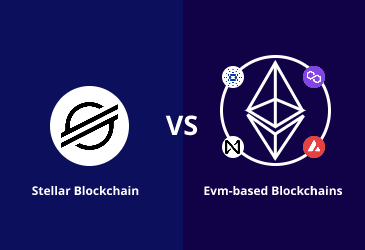
Stellar-vs-EVM-Based-Blockchains
Stellar and EVM-based blockchains are decentralized, open-source platforms designed to develop smart contracts and decentralized applications.

A deeper look into liquidity pools and how they are vital to the DeFi ecosystem
A liquidity pool is a group of digital assets gathered to facilitate automated and permissionless trading on the decentralized exchange platform.

What are Soulbound Tokens, and How do they Work?
Soulbound tokens, or SBTs, are digital identity tokens representing a person or entity’s features, traits and achievements. Learn more about SBTs.
Privacy Overview


Travel Tech Essentialist

Web3 Travel Tech Startups
Subscribe for free to Travel Tech Essentialist to receive 10 insights every two weeks in your inbox

Note: things are moving fast on the Web3 front, this post was updated on June 5th to make sure that it reflects the latest relevant information.
I contacted (all the links take the reader down to each of the startups’ section) DTravel , Xeniapp , WYTLAND , Pinktada , Stay Open , and New Frontier , four travel startups trying new models around blockchain, web3, and creator economy. These are the questions I asked:
Brief description
What is the problem or the unmet need that you trying to solve?
Who should be happiest and who should be most worried about what you are bringing to market?
What stage of development 1 are you?
Which are the specific metrics/KPI that you are most closely watching?
Any metrics/traction that you can share?
What new element(s) are you introducing that address some of the characteristics and possibilities enabled by Web3 models and blockchain technology?
Will you be compensating early users/partners/contributors to your platform with tokens? How so?
Funding status. How are you approaching your fundraising needs (traditional VC, angels, tokens, etc...)
Here are their replies to these nine questions.
1.1 Brief description of DTravel
Dtravel will provide short-term rental hosts and property managers with infrastructure that enables them to accept on-chain bookings via a new web3 ecosystem. The Dtravel ecosystem blends the freedom of direct booking sites with the simplicity of online travel agencies, offering unrivaled ownership and control over the entire booking process.
Hosts set their own booking terms, freely determine the content they display and retain a significantly greater portion of their earnings. Guests benefit from better rates, more meaningful rewards and expanded payment options with cryptocurrencies.
Dtravel’s long-term vision is to leverage web3 technologies to enable community members, including hosts and guests, to work together to build and realize the full potential of a community-owned travel experience. As the number of community members grows, this community-owned and led travel ecosystem will mold into a decentralized autonomous organization (DAO), empowering community members to directly shape the future of the Dtravel ecosystem by submitting proposals, voting on them and contributing to their execution.
1.2. What is the problem or the unmet need that DTravel is trying to solve?
Property Hosts:
Lack control over money, policies, and relationships with their guests.
Don’t receive adequate compensation from the value they contribute to current booking platforms.
Lack a voice in influencing the future direction of the platforms they participate in.
With greater control, more equitable compensation and a louder voice, Dtravel’s goal is to give hosts the ownership they deserve when it comes to their business.
Pay more than they should.
Aren't rewarded for their loyalty with meaningful or exclusive rewards programs.
Have limited payment options for travel.
In developing the guest experience for Dtravel, these problems have been singled out as core focuses.
1.3. Who should be happiest and who should be most worried about what you are bringing to market?
Dtravel caters to all existing and future hosts and guests who are interested in managing or booking short-term rentals. Within that group, Dtravel is especially appealing to individuals who seek greater independence from online travel agencies and understand the promise of cryptocurrencies and decentralization.
Dtravel is the natural progression of travel for the internet’s web3 evolution. In the not too distant future, it will be an open platform for all types of individuals and companies to contribute to in a variety of ways. We welcome anyone who wants to contribute to a new short-term rental ecosystem and invite them to join Dtravel in executing on our mission.
1.4. What stage of development is Dtravel at (please refer to Note 1)?
Dtravel is currently evaluating product-market fit. We recently signed our first partnership with a property management system (PMS) provider and are set to launch the second iteration of the platform in May 2022 with a group of early adopters.
Property managers and hosts interested in using Dtravel can create an account on Dtravel.com, import their listings via Hostaway and get started on their web3 hosting journey today!
1.5. Which are the specific metrics/KPI that you are most closely watching?
The metric we will be watching most closely — and the one everyone can publicly see — is the number of on-chain bookings. When a booking is processed via cryptocurrency, the funds initially sit in a smart contract escrow account before being released to the host once their selected cancellation window lapses. All of the booking activity will be recorded on the blockchain.
In addition, we will be closely tracking the number of hosts, number of listings (which can also be verified on the blockchain, based on each listing having its own booking smart contract) and number of guests.
1.6. Can you share any metrics/traction?
We have many deeply engaged hosts involved in our Host Beta Program, plus thousands of others we plan to offer access to in the near future. Dtravel also has a major Property Management System partnership with Hostaway.
1.7. What new Web3 elements are you introducing?
Since web3 is built on decentralized blockchain technology, there’s no middleman when using Dtravel. Instead, Dtravel functions as a tool that facilitates direct transactions between hosts and guests using automated payments via smart contracts.
Dtravel will also utilize other web3 technologies like the TRVL token and the Proof-of-Travel Passport.
The TRVL token is the native token of Dtravel, powering its self-driving economy. It derives its utility from four purposes; travel, loyalty, protection and governance.
The Proof-of-Travel Passport will give travelers the ability to build their own online identity that shapes their world of travel. Stamps will be issuable to a traveler's NFT passport from participating travel partners, allowing them to build their own travel credentials on-chain. This technology will enable travelers to own all their data from participating travel platforms, while the same platforms can access on-chain data to implement unique, highly personalized web3 marketing campaigns.
1.8. Will you be compensating early users/partners/contributors to your platform with tokens?
Early property hosts using Dtravel are entitled to earn tokens in our Founding Partners program. For every booking completed on Dtravel, hosts are entitled to a 5.0% TRVL giveback based on the value of their booking.
In the near future, we will expand the program to include special incentives for guests.
1.9. Funding status. How are you approaching your fundraising needs (traditional VC, angels, tokens, etc...)
Dtravel is advised and led by former executives from Airbnb, Expedia and other global technology companies, and is supported by world-class venture capital investors. The seed round saw over $7m in funds raised, entirely through purchases of the TRVL token.
Potential strategic investors in the TRVL token are encouraged to reach out to core contributors.
2.1 Brief description of Xeniapp
Xeniapp is an operating system for travel for the Web 3.0 economy – powering anyone seeking to sell travel online. Our system allows our clients to instantly launch a web-based storefront, a booking engine with wholesale travel inventory, a custom-for-travel CRM, and a blockchain based payment settlement engine.
2.2. What is the problem or the unmet need that Xeniapp is trying to solve?
We identified three massive pain points in the travel industry:
Accessing wholesale travel inventory is incredibly difficult, but experience sellers can’t earn commissions without it.
Launching a booking engine, featuring a broad selection of travel inventory, is technologically complex and incredibly expensive – but many experience sellers want to offer this on their website for their clients.
Payments in travel are slow, expensive, and unsecure – more so than in other industries – due to the complex nature of transactions (cross-border currencies, multiple counterparties in each transaction, biggest target industry for credit card fraud). In many countries, payments for travel can’t even be made with a credit card due to excessively high fraud rates. Disputes among counterparties occur often, and resolution is difficult since each counterparty uses a separate booking ID.
Xeniapp’s system solves these three pain points at once, by providing a white label-able booking engine loaded with travel inventory at wholesale rates, all while recording and settling every transaction on the blockchain.
2.3. Who should be happiest and who should be most worried about what you are bringing to market?
Experience sellers and inventory suppliers are happiest with our product. Experience sellers can now launch a customized booking engine and bookings management system in minutes – saving them hundreds of thousands or millions of dollars in tech expenses. Inventory suppliers see a huge new distribution channel – they can now access sellers they couldn’t reach before (because of the high tech and working capital hurdles inherent in distributing their product). Both parties can receive instant settlement of their transactions and reduce fraud by using XeniPay, our blockchain settlement engine.
Travel consortia and tech platforms, who respectively siphon off experience sellers’ commissions or charge huge upfront and monthly fees, could be disintermediated by our system. Credit card companies could also lose one of their biggest sources of revenue as transactions move to blockchain based settlement.
2.4. What stage of development is Xeniapp at (please refer to Note 1)?
Xeniapp is in the growth phase. We have a several-thousand client deep wait list to use our product, but we are launching it in phases with early clients starting December 15th.
2.5. Which are the specific metrics/KPI that you are most closely watching?
Number of users
Transaction volume per user
Commission rate (take rate on bookings volume)
Customer Satisfaction
Customer adoption
Cost per transaction on the decentralized network
Reduction of Fraud
The mode of payment (Fiat Vs. Crypto)
Tracking account disputes against the ledger entries – We will be watching for all the edge cases in the system
2.6. Can you share any metrics/traction?
Not yet. The product is launching on December 15th with 3 initial clients.
2.7. What new Web3 elements are you introducing?
I would say creator economy dynamics – We are democratizing the Online Travel Agency space by allowing anyone to build their OTA at a fractional cost. Furthermore, we will enable them to operate in Xeni's decentralized ecosystem.
We have built a decentralized application (dApp) where travel agents, airlines, flights consolidators, hotel companies, accommodation wholesalers, car rental suppliers, tour operators, cruise companies, and any similar travel company can access a shared ledger - a shared repository of bookings information. The XeniPay application tracks transactions for all connected intermediaries and suppliers in real-time. XeniPay enables instant settlement, greatly reduces the total payments cost of a transaction, and facilitates accounts reconciliation across counterparties.
2.8. Will you be compensating early users/partners/contributors to your platform with tokens?
Yes – we will be launching a coin offering in the future and we will be using a portion of the coins as incentive tokens. The full tokenomics will be available in our white paper. Work in progress on that front.
2.9. Funding status. How are you approaching your fundraising needs (traditional VC, angels, tokens, etc...)
We have recently completed over $2M in seed funding from Angels and HNWI. We are not looking to traditional VC at this time.
3.1 Brief description of WYTLAND
WYTLAND is a decentralized social commerce Travel platform, designed for Travel creators, brands and modern travelers.
3.2. What is the problem or the unmet need that WYTLAND is trying to solve?
As the travel industry is entering its 3rd revolution, traditional travel distribution channels are broken :
Modern travelers (GenZ) are shifting from search platforms to social media platforms.
Modern travelers trust people, not ads anymore.
Leading Web2 travel platforms such as Booking, Expedia or Tripadvisor are still relying a lot on search and ads and are keeping all the value from suppliers who want to escape but can’t.
Social Media platforms are shifting from Ads model to an E-commerce model but are keeping all the value from creators who want to escape but can’t.
This is where WYTLAND comes in with its new Web3 Social OTA model.
3.3. Who should be happiest and who should be most worried about what you are bringing to market?
The happiest people within the Travel industry will be Suppliers (Accommodations & Experiences) who are still 70% dependent on middlemen & don’t get access to their data. And Travel Creators who try to live from their passion but struggle within this siloed and fragmented ecosystem.
The most worried should be the monolithic, centralized and commoditized Online Travel Agencies and all the other middlemen platforms in this online travel industry market.
3.4. What stage of development is WYTLAND at (please refer to Note 1)?
WYTLAND is entering the PMF stage.
3.5. Which are the specific metrics/KPI that you are most closely watching?
We’ll closely watch a bunch of KPI’s: number of Travel Creators onboarded, GMV paid to Creators, number of brands onboarded, global travelers reached, conversion rates on direct monetization.
3.6. Can you share any metrics/traction?
It’s too early to talk about metrics and traction but we already are speaking with our community of Travel Creators and Brands to define the product.
3.7. What new Web3 elements are you introducing?
WYTLAND is using blockchain for different needs at every stage of the product road map. The first layer we are working on is the decentralized data management and infrastructure layer to ensure our users that their data, content and IP are safe and that they own their online shop.
We are also discussing with our community to build a DAO for product vision & strategic orientations.
NFT’s and Social Tokens are more in the monetization product road map later in 2022.
3.8. Will you be compensating early users/partners/contributors to your platform with tokens?
WYTLAND will contribute to early travel creators governance tokens. Being community-led is part of our DNA.
3.9. Funding status. How are you approaching your fundraising needs (traditional VC, angels, tokens, etc...)
WYTLAND is going Pre-seed in January 2022 with Angels & VC’s focusing on Creator economy, Social commerce, Web3 & new consumer app models.
4. Pinktada
4.1. brief description of pinktada .
Pinktada is a membership-based, leisure-focused, marketing and reservations platform that delivers an unparalleled user experience. Our technology leverages tokenization to deliver a significantly more efficient reservations marketplace. Hotels can increase the sales of non-refundable reservations, while travelers maintain the flexibility to swap or sell their reservations if their plans change.
4.2. What is the problem or the unmet need that you are trying to solve?
The first problem we solve is the loss of value that occurs with an inefficient distribution model that has not evolved in 20+ years. Take for example the binary, refundable/non-refundable pricing structure: for travelers, best pricing comes without flexibility. For hotels, best pricing comes without revenue certainty. With Pinktada, best pricing and flexibility come hand in hand. The second problem we solve is commoditization. Current booking options do not enable hotels to display their unique attributes effectively. By the same token, guests do not really know what they are getting until they arrive. Pinktada’s user interface combines experiential and transactional capabilities—travelers can explore different properties and accommodations in 3D, and reserve rooms and amenities directly from this immersive experience.
4.3. Who should be happiest and who should be most worried about what you are bringing to market?
Both hotels and travelers should be happy! We are using technology to create a more efficient model and, with that, enable both segments to capture more value. Incumbent distributors who currently take a large slice of the pie will likely be less happy though.
4.4. What stage of development is Pinktada at (please refer to Note 1)?
Stage 2- Product-Market Fit
4.5. Which are the specific metrics/KPI that you are most closely watching?
Hotel pipeline, member acquisition and engagement. We are already seeing transactions and know these will grow with our hotel pipeline and user base.
4.6. Can you share any metrics/traction?
We are on track to hit 25 – 30 hotels by the summer in our current target markets (Hawaii, different locations in Mexico, Dominican Republic, Bahamas, San Juan, and San Francisco, among others)
4.7. What new Web3 elements are you introducing?
At Pinktada, each combination of hotel + room + night becomes a distinct token, called a Room-Night-Token (RNT). The RNT is fully tradable on our platform—the owner can use it, sell it, or swap it for any other RNT in our marketplace.
Pinktada offers hotel partners and their guests the ability to create personalized, commemorative NFTs. The NFT is co-branded between Pinktada and the hotel, and travelers can customize it with visual assets from their trips. These NFTs can also have utility value (e.g., a special coupon for the NFT owner to share with family and friends) and collectible value in the case of travel experiences that are iconic and unique (e.g., a historic hotel or the room where a celebrity once stayed).
4.8. Will you be compensating early users/partners/contributors to your platform with tokens?
We are already compensating early users and partners in several ways: by informing them first of exclusive deals, offering special promotions, and by rewarding their referrals with PinkCash, which is a type of credit that can be used for any destination on Pinktada and never expires.
4.9. Funding status. How are you approaching your fundraising needs (traditional VC, angels, tokens, etc...)
We have raised seed money from a combination of industry leaders such as Terry Jones (Founder of Travelocity and Chairman of Kayak), prominent angels (Wharton Angels, New York Angels) and TGV4 (True Global Ventures), a leading firm in the space of Web3 and Blockchain. We have just started talking to people about our next raise and are delighted to have received sustained commitment from our current investors.
5. Stay Open
5.1 brief description of stay open.
Stay Open operates pod hotels for digital nomads in repurposed buildings and gives a portion of proceeds to help unhoused people. Stay Open’s objective is to expand its hotel network as quickly as possible while keeping prices affordable for its guests. Stay Open’s first location, Stay Open Venice Beach, is a 10-pod hotel that has serviced over 2,000 guests since opening its doors in 2021.
Stay Open recently minted a membership NFT with day 1 utility. NFT members receive a 15% discount for life and will be airdropped $TAY, $WRK, $XPR, and $GOV tokens to be used for free stays, coworking space, experiences, and StayDAO treasury governance respectively (more on StayDAO below). You can view all of Stay Open’s NFT utility here.
20% of proceeds generated from membership NFT sales will go towards StayDAO's community governed treasury to fund initiatives that help unhoused people. Additionally, a portion of Stay Open's operating revenue will be donated to StayDAO's treasury to continuously fund social impact initiatives.

5.2. What is the problem or the unmet need that you're trying to solve?
Awesome yet affordable accomodations for digital nomads and travelers.
The time it takes to create a hotel. Stay Open can repurpose a building into a hotel in months versus the years it takes to build a traditional hotel.
Web3 allows for ways to bridge virtual and IRL communities bonded by in person stays, events, and collaborations. Stay Open’s membership NFT offers a way to build a community around the mission and provides a new way for people to travel. Additionally, it's easily transferable so members can gift or sell their tokens as opposed to traditional hotel points which are illiquid.
Online travel agencies (OTAs) take a ~15% cut from bookings. Stay Open will utilize its membership NFT to incentivize direct bookings then give the savings back to members in the form of discounts.
5.3. Who should be happiest and who should be most worried about what you are bringing to market?
Digital nomads should be happiest; people seeking great accommodations with a communal vibe and coworking space in coveted locations at an affordable price. Traditional hotels, online travel agencies, and Airbnb should be most worried.
5.4. What stage of development is Stay Open at (please refer to Note 1)?
Stay Open is in its growth stage. The company is currently working on expanding its property network and growing its online and IRL community of NFT members.
5.5. Which are the specific metrics/KPI that you are most closely watching (be as specific as possible please)?
NTF Memberships minted
Occupancy rates
Number of beds in the network
Number of locations
Twitter, discord, and other social media followers
5.6. Can you share any metrics/traction?
Raised ~ $2.9M to date
2019: Partnered with Port of San Diego & CA Coastal Commission to convert a former Budget Rental Car to 240 bed hotel
2021: Stay Open Venice Beach opened Oct 2021 operating at 85%+ occupancy
2021: MetaProp VC 2021 Accelerator Program Anchor & Portfolio Company
2021 Q4: Sold out of beta NFT stay vouchers
2022: 5 star Google reviews
2022 Q2: Launched stayDAO NFT Membership
2022: Opportunity to open a 100 pod hotel in Santa Monica, CA in a repurposed office.
2022: Featured in WSJ & NYT. Approaching 1k twitter followers.
5.7. What new Web3 elements are you introducing?
Stay Open is introducing a web3 booking portal for its hotel. It will allow members to book stays with their NFT discount and redeem free stay, coworking, and experience tokens. In addition, they are building a community marketplace to buy, sell, trade, and gift tokens.
5.8. Will you be compensating early users/partners/contributors to your platform with tokens? How so?
Stay Open has used NFTs as compensation for creative work including videography, which they plan to do more of in the future.
5.9. Funding status. How are you approaching your fundraising needs (traditional VC, angels, tokens, etc...)
Stay Open has raised $2.9M to date from seed investors and are working with an exclusive group of strategic investors on their $4M institutional seed round. Investors may email Steve Shpilsky, CEO / Co-founder, at [email protected] for pitch deck and more info.
6. New Frontier
6.1 brief description of new frontier.
New Frontier designs innovative tourism engagement using VR, NFTs and the Metaverse. We do this by creating gamified experiences, treasure hunts, challenges and trails that use both the real world and the virtual world. These experiences can be physi-digital (layered on top of a real world visit) digi-physical (incentivise real world visits through virtual experiences or hybrid (move between both worlds during the experience). This interview at Enjins podcast " The Enjin Room " gives a good background to what we are doing.
6.2. What is the problem or the unmet need that New Frontier is trying to solve?
Travel trends are changing, not just because of the pandemic but also because research shows that there are variations intergenerationally, which need to be addressed. Research at last year's national conference indicates 26% of travellers want immersive experiences before, during or after a real world visit. This number will increase as GenZ become the primary consumers.
The issues we are trying to solve are threefold:
To create new sources of revenue for the Travel sector that do not directly depend on numbers through the door, which used to be the primary metric. There is a pivot to quality of experience as the key metric heading to 2030 goals, which is caused by COP 20, Covid, general awareness of carbon effects, cost of living crisis etc.
Attractions we are working with are usually looking for ways to engage specific demographics interactively as the primary goal, with encouraging other groups within their visitor profiles to try the technology as a secondary aim.
We are also emphasising the importance of education and community involvement in the discovery of NFTs and Metaverse as new technologies. This helps reduce fear/risk of trying new technologies and encourages a voice and participation for all key stakeholders in this development process.
6.3. Who should be happiest and who should be most worried about what you are bringing to market?
We are part of a Blockchain/NFT/Gaming network and official partners with Enjin, who are one of the creators of NFT technology (ERC 1155). We have over 100+ games, virtual worlds and other solutions that our NFTs can tap into, meaning we belong to the biggest network of its kind that this technology could be used in. We also have working relationships with two key metaverses: Decentraland and Sandbox, which are number 1 and number 2 in terms of user numbers.
There are a number of use cases that we have been investigating with the partnership of tourism bodies in Scotland and Mexico beyond simply the “engagement through gamification” angle. Other use cases include the use of NFTs as part of Loyalty and Reward schemes, anti-counterfeiting in food & drink , Identity verification of official staff, reservations and bookings and this list is not exhaustive. The benefit of NFTs versus other ways of doing this is the verification/immutability of NFTs on chain, the utility that can be added to NFTs that create unique personalised journeys, access to additional content and versatility of solutions.
Ultimately, who should be happiest is any attraction that is looking for economic recovery from the pandemic as we offer new routes to revenue generation/engagement and those who want to be “future proof” in engaging younger people, through early experimentation and evaluation.
6.4. What stage of development is New Frontier at (please refer to Note 1)?
We began trading in September 2021. We have received our first income, delivered our first NFTs to an attraction, and have a healthy pipeline of other clients in Scotland and the wider world. We have an excellent working relationship with tourism bodies in Scotland and joined the Traveltech cluster at the University of Edinburgh.
6.5. Which are the specific metrics/KPI that you are most closely watching?
We broadly use the KPIs devised by Quinn (2021) for the evaluation of NFT projects but we have made amendments to it where applicable. For example, measuring floor prices of NFTs is not a primary objective for our clients, since the objective is to use NFTs inclusively, not exclusively.
6.6. Can you share any metrics/traction?
We have a very specific methodology for our projects that involves presenting to the attractions sector, identifying pilots, evaluating those pilots (with the attractions sector) and then going to full deployment. This is deliberate because it emphasises community involvement, thorough evaluation and education for the attraction, visitors and the local community, which is key to get buy-in with a new technology.
We provided a webinar to The Association of Scottish Visitor Attractions (ASVA) which was rated as “excellent, inspirational and thought-provoking” by the attendees. It led to a paid commission for us from ASVA and Traveltech for Scotland to develop an interactive guide and toolkit for the attractions called “The Metaverse Playbook”. This is designed to explain the technology and show the steps needed to deploy a solution using case studies and stories from our early adopters. This was extremely well received and since then the CEO of ASVA has become an advisor and mentor for us and supported us in getting our first attractions on board. We have also had newspaper articles and interviews around this and one of our early clients, The Great Tapestry of Scotland: The Press and Journal , South of Scotland Destination Alliance , Traveltech for Scotland .
We are also working with Dundee Business School to create an empirical study into the economics of NFTs in tourism.
The Great Tapestry of Scotland project has grown from a small test pilot into a much bigger project:
NFTs based on themes from the Tapestry (the past)
Community contributed designs for NFTs (the future)
An App for learning about the Metaverse for the Discovery Centre at the Museum that is also going out to all Schools in the region (but is already getting recognition UK wide). Initially 15000 students aged 14-22 will receive the app in local schools & colleges, but visiting students from other parts of Scotland also will, within the museum education centre.
An interactive treasure hunt that partly takes place in the real world and partly in the Metaverse.
A Virtual Reality Gallery showcasing the NFT tapestries.
Training of volunteer “Digital Champions” who will assist with general queries about NFTs when nftfrontier.io is not on site.
In addition to this we are also working actively with Visit Arran. Arran is an island in the Scottish Hebrides and we are creating an island family adventure that is also a physi-digital experience.
There are a number of other projects in early stages in Scotland, wider UK and Mexico as well.
6.7. What new Web3 elements are you introducing?
In the main, tokenization, utility based NFTs, collections/ownership of experiences to encourage tourists to continue experiences after they return home and events within the metaverse. As we collaborate with games developers within our network we are also working on cross-compatibility of our NFTs with a significant number of games and virtual platforms. We are actively working with Enjin’s COO Caleb Applegate to utilise our experiences as a way of launching and showcasing blockchain gaming.
6.8. Will you be compensating early users/partners/contributors to your platform with tokens?
We are currently creating our documentation for an IDO of our native token, $TAY . 10% of the tokens will be allocated to the team including mentors, advisors and partners. Included with $TAY is a treasury to support the attractions sector through a hardship fund.
6.9. Funding status. How are you approaching your fundraising needs (traditional VC, angels, tokens, etc...)
To date the business is bootstrapped by our own capital. Although this arguably makes the process more difficult in terms of establishing ourselves, we felt we needed to have tangible /verifiable progress and the right partnerships in place before asking for investment. We intend to use the token release for capital raising but if the right VC can offer specific advice, support or access to markets, we would consider an investment and/or a combination of investment + tokens.
Problem-Solution Fit : Validating the problem you believe exists, and then validating the solution you believe will address that particular problem (typically for a particular type of user / market, etc.) Product-Market Fit : Validating that the product you have built resonates with your target market, and validate that the same market will pay money, data, attention, time, or another resource in exchange for your product Growth : Acquiring more users, customers, or clients, and understand the unit economics of your business model along with the underlying drivers of the unit economics. Market Leadership : Achieving market dominance, or obtain enough market share that your business is financially sustainable, can invest in R&D, product development, and other long-term growth areas. Scaling : Entering new strategic growth areas (typically new geographic markets, new product lines, or new applications of existing tech) that will provide the most value to the business, users, society, or other stakeholders.
Ready for more?
The team of web3 travel innovators
Get to know the team and story behind Chain4Travel
Accelerate digital innovation in the travel industry
Chain4Travel's mission is to transform the travel industry from a fragmented and outdated industry environment into a unified and efficient global shared network that accelerates innovation. By acknowledging web3 opportunities but also barriers for travel, it became clear the industry needs its own layer 1 travel infrastructure.
Create the foundation for a new generation of travelers
Chain4Travel is the initiator of Camino, the first web3 travel ecosystem, and provides the KYC (Know-Your-Customer) process as well as the application suite for the Camino mainnet to ensure a fast, stable and secure environment for all travel enthusiasts while taking advantage of all blockchain-associated features.

Our founders, Ralf Usbeck, Thomas Stirnimann, and Pablo Castillo, collectively possess decades of experience as serial founders and high-level executives in the travel tech sector. They identified significant challenges that the industry was confronting, as well as the emergence of novel technologies like web3, which have been transformative in other industries. However, there had been no notable endeavor or project in the travel industry. Back in 2021, they decided to change this and created the vision to build a collaborative network and enable digital innovation for the global travel industry. This vision is called Camino.

Ralf Usbeck
Ralf Usbeck is the widely respected German entrepreneur, founder, and chief executive of Chain4Travel, his latest venture in shaping the global travel industry with innovative travel technology. As founder of Peakwork, TravelTainment (sold to Amadeus in 2006), Vtours, and Weekend.com, he has already successfully built and exited companies in a 3-digit million volume. In 2013, Ralf Usbeck received an international award as 'Serial Innovator of Travel Technology' at the World Travel Market in London.

Pablo Castillo
Pablo Castillo, CIO and Executive Board member of Hotelplan Group from 2014 to 2021, has vast and proven experience delivering complex projects across all European markets with a strong business focus. He started his career in tourism over 20 years ago, selling trips for Kuoni, and has held various positions within Tour Operating, Data & Content Management, eCommerce, and international Project & Innovation Program Management for various international travel companies. He co-founded Chain4Travel in 2021, delivering the first layer 1 blockchain for the global travel industry, "Camino," ready to take advantage of the next iteration of technology and the web3 age.
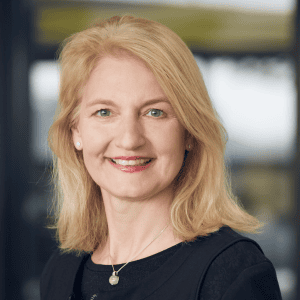
With more than 25 years of experience in the travel industry, Anke Hsu has worked in various leadership positions for the Lufthansa Group, flights.com, Sabre Corporation, FTI Group, and InteRES GmbH (a subsidiary of TUI) at locations in Germany, France, Switzerland, the USA, and Brazil. In addition to her position as VP Business Development at Chain4Travel, she is an external doctoral blockchain researcher at the University of Zurich, ranked as one of the top blockchain universities worldwide.

Alexander Koch
Alexander Koch is a technology enthusiast and expert in high-performance computing. After studying and working at the Computing Center of RWTH Aachen University, he started his career in the travel industry in 2010 as a software engineer at Peakwork, where he was instrumental in driving player technology together with Markus Pfau. Striving to broaden and deepen his knowledge, Alex is a key driver for strategic projects, innovations and new technologies.

Vincent Usbeck
Vincent Usbeck is VP Sales and Marketing at Chain4Travel. During his studies with a focus on management, philosophy and economics, Vincent founded a start-up in the travel sector and was able to gather various expertise and establish relationships in the industry. After his studies, he worked in South America. He is passionate about making innovative technologies such as blockchain accessible to new markets, which determines his daily work at Chain4Travel.

Julia Landis
Julia is VP Finance at Chain4Travel AG. During her studies in Cologne in the field of office management, she worked in a law firm where she was able to put her acquired knowledge directly into practice. Back in Zurich, Julia worked in the banking sector, where she had her first touchpoints with the world of cryptocurrencies and blockchain. Since then, she has become passionate about the vision of Chain4Travel and is eager to use her extensive professional experience in managing positions and her strong sense of organizational structures and finances for the benefit of Chain4Travel.

Michele Ruberl
Michele is a veteran technologist with a 20+ year career delivering software solutions on four continents. Michele “Mik” Ruberl has been involved in blockchain for traveltech since 2017, as the CTO of Sandos Hotels & Resorts first and then serving as the Head of Architecture & Integration at Alpitour. Under his leadership, various projects have been implemented, such as a decentralized travel loyalty federation and several NFT applications for the tourism ecosystem. Today, Mik is Director Blockchain & Web3 Solutions at Peakwork AG and VP Product at Chain4Travel.

Sam Jaarsma
Before moving to Mallorca in 2001, Sam was active in programming, testing, and IT project management in the finance sector in Holland. He started his journey in tourism with the accommodation integration of easyJet for Hotelbeds. From 2007 at MTS Globe, he was responsible for the development of provider and distribution integrations. At Chain4Travel, Sam’s focus is the implementation of open-source data standards for an easy transition to web3 for the travel industry.

Mohamed El-Moslemany
Mohamed is a software development professional with 8 years of experience. He holds a B.Sc. degree in Mechatronics with High Honors from the German University in Cairo and a M.Sc. degree in Robotics from TU-Dortmund. Mohamed has been a key member of Chain4Travel since 2022, leading infrastructure, automation and deployment efforts with exceptional expertise and dedication.

Ekrem Seren
Ekrem Seren, Chief Architect at CompecTA for over a decade, is an expert in the field of high performance computing clusters and Linux systems. Having studied Naval Architecture at Istanbul Technical University, Ekrem used his technical skills to move into the High Performance Computing field. He has vast experience in building and maintaining robust computing clusters, setting new standards in the travel industry. His deep knowledge, strategic insights and commitment to innovation perfectly prepare him for his role as Docu Lead at Chain4Travel.

Cristina Pardo Requena
Cristina is an international lawyer with more than 15 years of experience in corporate, M&A and restructuring transactions, national and international contract practice and general corporate and commercial law. She has advised several technology companies on their structuring, fundraising, M&A transactions and regulatory issues. She has also advised companies on the implementation of strategic contracts required for their digital asset activities. Cristina is a web3 and technology enthusiast, passionate about the vision of Chain4Travel and eager to use her vast professional experience to ensure that the project complies with all legal requirements.

Helena Vossen
Helena earned her bachelor's degree in Tourism Management from Heilbronn University of Applied Sciences and her master's degree in International Marketing and Media Management from RFH University of Applied Sciences Cologne. Helena found her passion for innovative technologies early on during her bachelor's studies, which led her to write her thesis about the potential of blockchain technology for the travel industry. In her position as Digital Marketing Manager at the German National Tourist Office in London, Helena was responsible for creating and realizing cross-media campaigns. Today, she can apply and intensify her knowledge in the disciplines of marketing and blockchain in her daily work at Chain4Travel.

Vladimir Novikov
Vladimir is an experienced brand and marketing executive with over 10 years of hands-on experience. Known for analytical/data-driven and strategic thinking, clear communication, and creativity in developing successful marketing campaigns. Skilled in digital marketing and able to manage tasks effectively while building strong relationships with teams and stakeholders. Notable achievements include launching the first Web3 booking application win.so through successful go-to-market strategies and building local travel brands. Vladimir's work is always driven by a desire to build customer-focused communications.
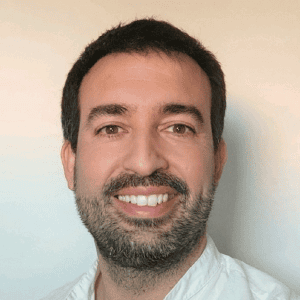
Juan B Sanchez
Juan B Sanchez has lived in Cordoba, Madrid, Rabat, Milan, Manchester, and Valencia coast. He started in 2002 in the travel business, becoming a sport & culture group travel specialist. So far, Juan has organized over 200 tours and events and founded his own company: Odisea Tours. Due to the covid pause, he had to reinvent himself and found on blockchain online communities an exciting opportunity to evolve professionally. He now mixes his two passions: blockchain & people, and helps the Chain4Travel team to develop and grow the Camino Network community.

Illa Eggers
Illa Eggers is our contact for global public relations. With more than 20 years of experience in the travel industry and especially in travel technology, since the year 2000 she has been the communication specialist behind all major external communication of TravelTainment and Peakwork. Next to PR Illa knows all the marketing related challenges of a travel tech company - from corporate communication via social media, on- and offline channels to developing customer relations and event communication.

Andrew Owen-Jones
Andrew Owen-Jones has over 30 years of travel technology experience and knowledge in multiple key markets. He is CEO and Co founder bd4travel 2013 - now. He won the Award of ML based business serving travel and retail businesses. He was CEO Amadeus Leisure Group 2009 - 2011. Director Leisure Strategy Amadeus 2001 - 2009. Board Member Comtec, Multicom, CCO Virgin Travelstore 2000, GM IT Virgin Atlantic 1997 - 2000.

Beat Blaser
Beat Blaser is Co-Founder and Managing Partner at Falkensteiner Ventures. He gained a comprehensive overview of travel and hospitality tech startups, managing a diverse portfolio of investments. Until 2018, Beat was MD at Thomas Cook for their City/Domestic tour operator platform, serving multiple markets in Continental Europe, the UK, and the Nordics. Currently, he is a Board Member in several startups and grownup companies in travel and hospitality across Europe.

Benjamin Usinger
Benjamin Usinger is the Chief of Staff to the CEO at BitMEX and the Lead for their token projects. In this role, he designed and launched successful Token projects. Prior to this role, Ben was an Associate Director in KPMG Hong Kong and founder of their Crypto Advisory team since 2017. For more than 8 years, he has been working with Crypto Asset Service Providers and Banks on their institutionalisation and adoption of digital assets and brings deep expertise in Tokenomics & utility development, token issuance, market mechanics, liquidity and crypto asset regulation.
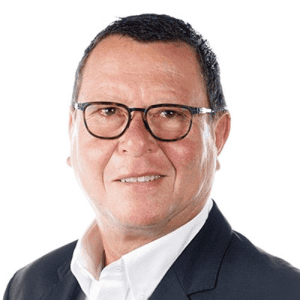
Berthold Holly
From measuring runways in exotic destinations in the 80s - while opening a good number of destinations around the globe for traditional TOs - to today's wide presence in the travel tech environment, Berthold Holly, over the past 35+ years, has accumulated a vast range of experiences in the various & many verticals representing the tourism industry. His first encounter with the techie-side of things came when he was tasked to build the Summer Sun bedbank-business for Expedia in EMEA, opening shops in 18 countries, earning him the 'Gobal Sales Manager of the Year'-Award. He then became a lobbyist for Expedia in this super-region, generating marketing monies from the Ministries of Tourism versus delivering ROIs measured in numbers of jobs created. For the past 10+ years, Berthold has been an independent consultant. Always engaged at the frontline of things, his tremendous network today allows C4T to have the right doors opened at the right level and in far-flung places around the globe.

Christian Schuhegger
After finishing his studies in mathematical physics at the Technical University in Munich, Christian started his career with a fellowship program at the European Laboratory for Particle Physics (CERN) in Geneva. He then moved to Munich and spent five years at a bank as a software engineer and later on as team leader. In 2008, Christian acted as interim head of the consumer finance department's IT division at Ukrsibbank in Kiev before joining 360T (now part of the Deutsche Börse Group as their Foreign Exchange arm) in the role of Head of Technology. The core capability of the 360T foreign exchange trading platform is low latency, high throughput geo-scale distributed computing. Christian served at 360T in the role of Head of Technology and member of the Group Executive Board for 10 years until end of 2018 and he is still an Advisor to the Group Executive Board at 360T. Since late 2020 Christian joined Arabesque S-Ray (ESG Book) as platform expert and is helping to make the platforms developed at Arabesque a success.

David Henderson
David Henderson has over 30 years experience selling Technology Solutions across Travel, Telecoms & Software. He is currently Co-founder of Hangout on Holiday, pioneers in Digital Communications App Platforms. He has lived in Switzerland, Greece and the USA managing Corporate teams on every continent and spearheaded the launch of several VC backed, US start-ups into Europe. He was VP Intl & Board Member at Holiday Taxis ahead of its sale to Hotelbeds.

Glenn Morgan
Glenn Morgan is a Fellow of the Chartered Institute for IT, Non-Executive Director, and Strategic Digital and Business Transformation Leader, bringing over 40 years of cumulative experience in strategy, venture building, corporate innovation & digital transformation. Glenn spent the last 25 years at British Airways & International Airlines Group creating and leading IAG's Hangar 51 multi-million ventures fund and global accelerator, working with start-ups and VCs. Glenn is the ex-Chairman of the IATA Digital Council and oneworld Digital Board. Glenn's responsibilities included being IAG's Chief Technology Officer, in charge of the group's information technology strategy. Glenn holds several technology patents and is an active angel investor and Non-Executive Director on several boards. In his spare time, Glenn participates in international motorcycle races, competing in FIA and FIM World Cup Cross Country rallies, and is a Tae Kwon Do Instructor and 2nd Dan Black Belt.

Jan Stenger
Jan Stenger is a serial entrepreneur and digital business expert. He developed his first b2b platform in 2000 and has since helped scale over ten more. With his company Companion D, he is transforming traditional companies and building up new digital businesses and, above all, tech teams for owners and investors, including transatlantic. Jan is also an advisory board member of several different travel tech/cyber companies in the US and Europe.

Markus Pfau
Markus Pfau is a brilliant developer. He has already developed technologies that have significantly changed distribution and production in the tourism industry. For example, Markus developed the caching technology of TravelTainment (now Amadeus). He is the inventor of the Player Hub technology and the founder of Peakwork. He has been developing successful blockchain projects for several years.

Martin Kloeckner
Martin Kloeckner is Senior Technology Consultant at PricewaterhouseCoopers (Pwc) in Australia, where he advises clients on IT strategy and contributes to the blockchain/web3 practice build in the APAC region. He started his travel tech career in Germany in 2008 at TravelTainment, managing key accounts in the DACH market before he implemented strategic XML connectivity projects with international hotel channel managers and OTA's as Partnerships Manager at HRS. After his migration to Australia in 2015 Martin endeavoured on a five-year entrepreneurial journey as co-founder and managing director of BBQ Buoys, a multi-award winning leisure experience provider for local and international customers in Adelaide.

Norm is a recognized expert on travel technology, particularly his analysis of the impact of emerging trends such mobile, social media, blockchain and Artificial Intelligence. He has extensive experience in all travel industry sectors including airlines, tour operators, online and traditional travel agents, hoteliers, rail and software platforms used for operations and distribution. From 1982-1988 he held sales and marketing management positions at United Airlines and from 1989 -1995, Norm was corporate travel manager for Sun Microsystems. At Sun, he worked with a number of third-party developers creating client/server software for the business travel market. This included early prototypes of self-booking tools and expense management systems.
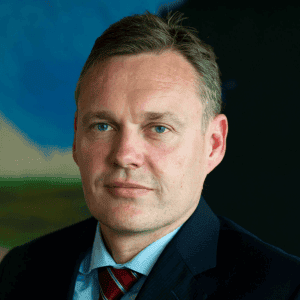
Ulrich Sieber
Ulrich Sieber performed different leadership roles in the financial services industry. His entire professional career anchors in investment banking and functions in Human Resources. His career started at Bayerische Vereinsbank in Munich, followed by employment at Credit Suisse, JPMorgan, and Dresdner Bank. He served at the Board of Managing Directors at Commerzbank Group, focusing on integrating Dresdner Bank into Commerzbank.
Our growing team is as global as the vision for the travel industry itself. We are working in different time zones and with different cultural backgrounds. With our shared passion for innovation in the travel industry, we work continuously on making blockchain accessible and approachable for the industry. Join us on our journey to break boundaries and change the way of travel.
Whether you are a startup looking to break into the travel industry or an established player seeking to stay ahead of the curve, Chain4Travel is your ultimate guide to digital transformation and innovation. Join us on the journey to the world of travel reinvented.

Don't fill this out if you're human:
Your Email:
Cities [ edit ]

- 52.283333 104.3 1 Irkutsk — the attractive capital and largest city; one of the principal stops on the Trans-Siberian Railway and the gateway to Lake Baikal
- 52.566667 103.916667 2 Angarsk — the second largest regional city is home to the Museum of Clocks
- 56.152 101.633 3 Bratsk — a relatively large city on the Baikal-Amur Mainline
- 51.853611 104.869167 4 Listvyanka — located on the shores of Lake Baikal
- 51.659444 103.706111 5 Slyudyanka - southernmost point of the Baikal, famous for its marble railway station and smoked omul
- 54.9 99.016667 6 Nizhneudinsk — a small city on the Trans-Siberian with a pretty church; located near some interesting caves and a waterfall along the Uda River
- 55.933333 98.016667 7 Tayshet — nothing much to see, but many stop at this important rail junction to begin the Baikal-Amur Mainline
Other destinations [ edit ]

- 53.302778 108.004722 2 Lake Baikal — located between Buryatia and Irkutsk Oblast , is the deepest and oldest lake in the world and also the planet's largest body of freshwater.
- 51.72865 103.72159 3 Circum-Baikal Railway
- 53.15 107.4 4 Olkhon — the largest island in lake Baikal is a real jewel, and worthy of the effort it takes to reach it.
- 51.8531 104.882 5 Pribaikalsky National Park
Understand [ edit ]
Irkutsk Oblast, in particular the capital Irkutsk and the shores of Lake Baikal , is likely Siberia 's top travel destination.
Talk [ edit ]
Russian is understood and spoken by all; some members of ethnic minorities (especially the Buryat) are bilingual and speak their native languages with one another.
Get in [ edit ]
By plane [ edit ].
Irkutsk Airport ( IKT IATA ) is one of Russia 's most important and receives international flights from Mongolia , China , South Korea , Thailand , and Uzbekistan . Domestic flights are available from most major Russian airports, including: Saint Petersburg , Moscow , Khabarovsk , Yekaterinburg , Vladivostok , and many others.
By train [ edit ]
Despite the importance of Irkutsk Airport, most travellers still arrive via the Trans-Siberian Railway , which stops at (from west to east): Taishet (junction with the Baikal-Amur Mainline ), Nizhneudinsk , Usolye-Sibirskoe , Angarsk , Irkutsk , among other less frequented settlements.
By car [ edit ]
Baikal Highway crosses the region from west to east. A bus from Ulan-Ude connects Irkutsk with Buryatia.
Get around [ edit ]
Bratsk and Ust-Orda are accessible via the Baikal-Amur Mainline from the Trans-Siberian Railway junction at Taishet.
Do [ edit ]
- Camping out on one of Lake Baikal 's islands
- Fishing galore
- Rafting on Irkut river. Whitewater grade is 1-3 in some places of 150 km river.
Read [ edit ]
- Michel Strogoff by Jules Verne.
- Plays by Alexander Vampilov.
- Writings by Valentin Rasputin.
Stay safe [ edit ]
- While being in woods, beware of snakes that are commonly warming in the sun on the stones. There is not many of them but some may be vipers.
- The other problem of this (and other regions of the North Hemisphere) is ticks. Their bites may be infectious. Usually vaccinations are taken beforehand.
Go next [ edit ]
Irkutsk Airport is a useful hub to jump off to different parts of the country.
For closer destinations, most will travel by the Trans-Siberian Railway , which leads to Kansk and further Krasnoyarsk in the west and to Ulan Ude in the east.
The Baikal-Amur Mainline , which runs on a parallel track to north of the Trans-Siberian, begins at Taishet in western Irkutsk Oblast and on to Severobaikalsk .
- Has custom banner
- Has mapframe
- Has map markers
- Eastern Siberia
- All destination articles
- Outline regions
- Outline articles
- Region articles
- Bottom-level regions
- Has Geo parameter
- Pages with maps
Navigation menu
Airlines required to refund passengers for canceled, delayed flights
Transportation Secretary Pete Buttigieg announced the new rules Wednesday.
Good news for airline travelers: the Department of Transportation on Wednesday announced it is rolling out new rules that will require airlines to automatically give cash refunds to passengers for canceled and significantly delayed flights.
"This is a big day for America's flying public," said Transportation Secretary Pete Buttigieg at a Wednesday morning news conference. Buttigieg said the new rules -- which require prompt refunds -- are the biggest expansion of passenger rights in the department's history.
Airlines can no longer decide how long a delay must be before a refund is issued. Under the new DOT rules, the delays covered would be more than three hours for domestic flights and more than six hours for international flights, the agency said.
MORE: Amid Boeing safety probe, clock ticks on effort to disclose details of 2021 DOJ deal over 737 Max crashes
This includes tickets purchased directly from airlines, travel agents and third-party sites such as Expedia and Travelocity.
The DOT rules lay out that passengers will be "entitled to a refund if their flight is canceled or significantly changed, and they do not accept alternative transportation or travel credits offered."

DOT will also require airlines to give cash refunds if your bags are lost and not delivered within 12 hours.
The refunds must be issued within seven days, according to the new DOT rules, and must be in cash unless the passenger chooses another form of compensation. Airlines can no longer issue refunds in forms of vouchers or credits when consumers are entitled to receive cash.
Airlines will have six months to comply with the new rules.

"Passengers deserve to get their money back when an airline owes them -- without headaches or haggling," Buttigieg said in a statement.
The DOT said it is also working on rules related to family seating fees, enhancing rights for wheelchair-traveling passengers for safe and dignified travel and mandating compensation and amenities if flights are delayed or canceled by airlines.
Buttigieg said the DOT is also protecting airline passengers from being surprised by hidden fees -- a move he estimates will have Americans billions of dollars every year.
Related Stories

Airlines will now be required to give automatic cash refunds for canceled and delayed flights
- Apr 23, 4:31 PM

Freight train carrying fuel derails, igniting fire
- Apr 27, 1:21 PM

Southwest Airlines is considering changes to its quirky boarding and seating practices
- Apr 26, 4:13 PM
The DOT rules include that passengers will receive refunds for extra services paid for and not provided, such as Wi-Fi, seat selection or inflight entertainment.
The rules come after the agency handed Southwest Airlines a record $140 million fine for its operational meltdown during the 2022 holiday travel season.
MORE: New whistleblower claims put Boeing's quality control under more scrutiny
Buttigieg said Southwest's fine sets a "new standard" for airlines and passenger rights.
"To be clear, we want the airline sector to thrive. It is why we put so much into helping them survive the pandemic and honestly it's why we're being so rigorous on passenger protection," he said.
Buttigieg reiterated that refund requirements are already the standard for airlines, but the new DOT rules hold the airlines to account and makes sure passengers get the "refunds that are owed to them."
"Airlines are not enthusiastic about us holding them to a higher standard," Buttigieg said, adding that he "knows they will be able to adapt to this."
Airlines for America, the trade association for the country's leading passenger and cargo airlines, told ABC News in a statement that its members "offer a range of options -- including fully refundable fares." Is said consumers are "given the choice of refundable ticket options with terms and conditions that best fit their needs at first search results."
The group said the 11 largest U.S. airlines issued $43 billion in customer refunds from 2020 through 2023 nearly $11 billion in refunds just last year.
Related Topics

Southwest to limit hires, drop airports after loss
- Apr 25, 7:18 AM

BNSF becomes 2nd major railroad to sign on to anonymous federal safety hotline for some workers
- Apr 25, 2:04 PM
ABC News Live
24/7 coverage of breaking news and live events
Mountain View, CA
Mountain View
Around the Globe
Hurricane tracker, severe weather, radar & maps, news & features, winter center, trending now.
Now Playing
‘Ghosts’ Star Richie Moriarty on Pete’s Traveling Power & What It Means for the Season 3 Finale

Spoiler Alert

For Woodstone’s Select Spirits
For exclusive news and updates, subscribe to our ghosts newsletter :.
[Warning: The below contains MAJOR spoilers for Ghosts Season 3, Episode 9, “The Traveling Agent.”]
Ghosts is breaking new ground in the latest installment, “The Traveling Agent,” as do-gooder troop leader spirit Pete ( Richie Moriarty ) discovers his special power is that he can travel beyond the ghost boundary on Woodstone’s property.
While this power would thrill almost any spirit you could think of, Pete is initially reluctant to embrace the gift tied to his past as a travel agent who didn’t travel when he had the chance in life. After a bumpy outing with Jay ( Utkarsh Ambudkar ), Pete is further convinced that his power isn’t something he wants to explore further, but he’s convinced by his pals that he should embrace it.
By the end of the episode, he was boarding a flight to St. Lucia where his daughter and grandson were vacationing. Below, Moriarty opens up about his initial reaction to Pete’s ghost power, the possibilities it unlocks, thoughts on his bromance with Jay, potential romance with Alberta ( Danielle Pinnock ), and how the power will impact the finale episode.

Bertrand Calmeau/CBS ©2024
Pete’s episodes always have an emotional aspect to them. Do you like leaning into that heaviness?
Richie Moriarty: I think the Joes have really seen Pete as the emotional heart of this cast in the way that he’s very earnest. He’s very naive, but there’s a lot of heart that comes out of this guy. He cares greatly for the other ghosts in the house. He really sees them as his troop. He was a troop leader in life, and this troop of ghosts is this group that he, in many ways likes to lead. So I love that the character has that dimension in the show because all of [Pete’s episodes] are incredibly heart-wrenching, and I think it’s really fun to be able to play the different dimensions of this character.
Did you feel adrift without your troop as Pete explored his traveling powers?
I did feel a little adrift. I’ll be honest. We get so used to being in tight quarters with so many of us that it is strange whenever we shoot a flashback and we’re with other people in different places, or we have a situation like this where I am away from the mansion for the first time as a ghost. Exciting because you’re in a new environment, but then it’s almost a little more heady because you do have to think about, “Okay, this guy has not been out of the house in 40 years. How is he going to respond and take these new environments in?” There’s a lot he hasn’t seen in so long. It’s really exciting narratively for the show, it opens up a world of possibilities, which I’m thrilled about, but it is weird.
How did you feel about Carol’s death this season and do you hope to have her and Pete cross paths more?
I hope so. I hope that we’ll be able to continue to work with Caroline Aaron. She’s so funny. I think narratively for Pete, it makes sense that he needs to move on. But it’s also narratively really fun to have her hanging out and popping in when we need that character and when we need to ruffle Pete’s feathers some more. And she’s just a joy to work with. And it was really funny because when she came back, there was a lot of figuring out the ghost rules, relearning them after she learned for the first two seasons, “Do not look us in the eyes.”

Bertrand Calmeau/CBS
Pete’s power stems from his travel agent career in life and the fact that he never traveled. Do you think that realization will help him grow moving forward?
I think there’s big growth for him in the season finale. There’s a definitive moment that really changes him and I think changes his outlook, and he’s able to bring some of that perspective back to Woodstone and talk to the other ghosts about it. That’s what I’m most excited for. The possibilities with this power are kind of endless.
Does he see the merits of rule-breaking now?
Yeah. I think the Shawshank thing that Jay brings up in the episode is real, right? It’s crazy to think about being in one place for 40 years and then all of a sudden having the front door open and it’s like you can go wherever you want. I’m sure it would be massively intimidating, but as much as he doesn’t want to do it at first, I think he’s going to learn quickly that this can totally open up your world and broaden your experiences, and equip him in different ways to help other people.
Jay and Pete’s bromance is a highlight of the show. Do you hope to continue deepening that relationship?
Totally. I love working with Utkarsh. He’s become such a good friend, and the two of us love anytime we’re on set together. And the Joes have found great ways to get him involved, especially this season with Sas’s power, and with my power. So I think that will continue in different ways.

'Ghosts' Star Rebecca Wisocky on Hetty's Death Secret Reveal & Flower's Return
Is there hope for the Albert-Pete romance pipeline? It seems as if she’s warming up to the idea this season.
I think the Joes are smartly slow playing this Alberta and Pete relationship, and I honestly don’t know what their intentions are with it. But I do know that Danielle and I love each other so much, and whatever they do with this, we are going to be thrilled. In so many ways the two of these people make no sense together, but the more they learn about each other, the more they sort of grow in their afterlife, especially since she has been attracted to bad boys her whole life and she’s realizing that maybe that wasn’t the smartest thing. So why not look at the opposite in Pete, this guy who’s just insanely loyal and a true nice guy. And I think for Pete, too, he’s obviously never encountered anyone like Alberta in his life. So there’s huge potential in new things for him, and that’s part of what kind of ties back to this power is he has a lot of new experiences with this power that are on the horizon.
Ghosts , Thursdays, 8:30/7:30c, CBS

Ghosts where to stream
Richie Moriarty


IMAGES
VIDEO
COMMENTS
Phocuswright's latest travel research report on the topic Roundup: Web3 Is Proving Its Value in Travel includes a full summary of concepts in play today, with specific examples. Below are excerpts from the full report: Efficiency and lowering cost of payment/settlement. Transforming loyalty. Creating a direct distribution environment for ...
The travel industry can create a new wave of mass adoption in Web3, and over 150 companies are already working on it. The travel industry has long been a behemoth, catering to the diverse needs of ...
The first web3 travel hackathon in Munich brought over 40 travel tech enthusiasts and professionals under one roof of FTI HQ. Participants could learn, build, and deploy new concepts on Camino Network. 2023 Recap: milestones achieved and new horizons ahead. January 30, 2024.
The next chapter of travel is taking off. To provide a safe and secure environment for Web3 developers, over 200,000 lines of code written for the Camino blockchain were audited by prominent ...
Web3 will deeply impact any travel business within a few years. Now it's the perfect time to learn what's going on and get ready. WHY? To Onboard and Educate the Travel industry to Web3 and create a network on Web3 in Travel entrepreneurs. Get on the White List. WHERE?
Travel when you want, where you want, how you want. TRVL is a utility token that bridges the gap between travel and blockchain. The token serves to streamline fragmented systems within the travel industry by decentralizing traditionally centralized functions, bringing travel into the web3 era.
In conclusion, as we stand at the crossroads of a decentralized web and global travel, the possibilities seem boundless. With pioneers like Tripinvest leveraging the capabilities of Web3, the ...
The Camino Network is a public and permissioned Web3 blockchain for the global travel industry that anyone can build on. Zug, Switzerland, May 4th, 2023, Chainwire. Chain4Travel, the Swiss startup building a blockchain-based infrastructure for the travel sector, has announced the mainnet of its web3 travel ecosystem Camino Network is now live ...
Summary. Following a long buildup-and-hype period, 2023 is proving to be a pivotal year for Web3: These decentralized technologies are now delivering concrete, measurable value to the travel industry. Over the past several years, a diverse set of new Web3 companies have emerged, and many are already driving change in the travel space.
Tomorrow Explored Podcast ventures into the utility of Web3 with Pablo Castillo from Chain4Travel.Camino Network aims to become the definitive Web3 ecosystem...
Web3 is poised to unlock a new era of possibilities for travelers and the travel industry alike. By embracing the principles of decentralization, transparency, and security, Web3 enables a future where individuals have greater control, trust, and efficiency when exploring the world. As we navigate this exciting frontier, it is crucial to embrace innovation responsibly and overcome the ...
Web3 focuses on asset tokenization and strongly emphasizes interoperability and decentralization. It integrates decentralized social content, offering extreme levels of personalization while ...
Stability and security are two of the most important benefits web3 in travel offers. A blockchain's decentralized nature implies that transactions recorded are always traceable; hence, information cannot be lost or deleted accidentally. The travel industry relies heavily on information exchange between companies.
The bankruptcy of local travel agents and the emergence of services such as Airbnb are just two widely recognized examples. Back in 2018, 82% of trips were booked online via a mobile app or website - with no human interaction. In 2019, the online travel booking market share represented 63% of the $1.2 trillion generated by the travel industry.
1.1 Brief description of DTravel. Dtravel will provide short-term rental hosts and property managers with infrastructure that enables them to accept on-chain bookings via a new web3 ecosystem. The Dtravel ecosystem blends the freedom of direct booking sites with the simplicity of online travel agencies, offering unrivaled ownership and control ...
Travel industry professionals are planning investment in web3 as a marketing tool, according to research from the TravelTech Show (TTS) that reveals 74% see the potential for web3 in marketing campaigns, while the remainder are undecided. Breaking the 74% down further reveals that 36% are specifically interested in artificial intelligence and ...
Create the foundation for a new generation of travelers. Chain4Travel is the initiator of Camino, the first web3 travel ecosystem, and provides the KYC (Know-Your-Customer) process as well as the application suite for the Camino mainnet to ensure a fast, stable and secure environment for all travel enthusiasts while taking advantage of all blockchain-associated features.
Dtravel - Travel Talks with InPeak, a lifelong learning platform for emerging technologies. In this video, Dtravel's Head of Demand Growth, Cynthia Huang, di...
We have a simple thesis: Web3 will eat travel. Join Trips Community and find out why tourism should look forward. We have a simple thesis: Web3 will eat travel. ... Luca was already a Bitcoin enthusiast in 2013 and a full-time Web3 aficionado by 2017, when the Trips Community was launched. The Community.
This region travel guide to Irkutsk Oblast is an outline and may need more content. It has a template, but there is not enough information present. If there are Cities and Other destinations listed, they may not all be at usable status or there may not be a valid regional structure and a "Get in" section describing all of the typical ways to get here. . Please plunge forward and help i
The rules come after the agency handed Southwest Airlines a record $140 million fine for its operational meltdown during the 2022 holiday travel season. MORE: New whistleblower claims put Boeing's ...
Watch the best weather videos from across the web.
Irkutsk (/ ɪər ˈ k u t s k / eer-KOOTSK; Russian: Иркутск, IPA:; Buryat and Mongolian: Эрхүү, Erhüü, ) is the largest city and administrative center of Irkutsk Oblast, Russia.With a population of 617,473 as of the 2010 Census, Irkutsk is the 25th-largest city in Russia by population, the fifth-largest in the Siberian Federal District, and one of the largest cities in Siberia.
The city's rapid development commenced with the announcement in 1952 that a dam and hydroelectric plant would be built at Bratsk on the Angara River. Town status was granted to Bratsk in 1955. [4] The city of Bratsk was formed from separate villages, industrial and residential areas according to a 1958-61 masterplan.
Rome2Rio is a door-to-door travel information and booking engine, helping you get to and from any location in the world. Find all the transport options for your trip from Bratsk Airport (BTK) to Irkutsk right here. Rome2Rio displays up to date schedules, route maps, journey times and estimated fares from relevant transport operators, ensuring ...
Ghosts is breaking new ground in the latest installment, "The Traveling Agent," as do-gooder troop leader spirit Pete (Richie Moriarty) discovers his special power is that he can travel beyond ...